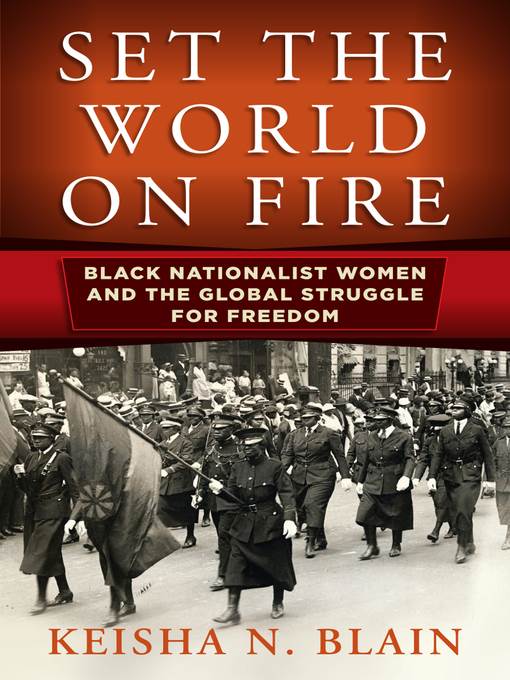
Set the World on Fire
Black Nationalist Women and the Global Struggle for Freedom
- اطلاعات
- نقد و بررسی
- دیدگاه کاربران
نقد و بررسی

Starred review from December 11, 2017
Blain, assistant professor of history at the University of Pittsburgh, illuminates an oft-ignored period of black nationalist and internationalist activism in the U.S.: the Great Depression, World War II, and early Cold War. Her engrossing study shows that much of this activism was led by African-American and Afro-Caribbean women. As racism intensified the sufferings of black Americans during the Depression, people of color in Africa and the Caribbean were increasingly agitated by British imperial rule; this circumstance encouraged female activists who had participated in Marcus Garvey’s movement to see the task of fighting white supremacy as one that united people of African descent across physical and political boundaries. Blain bolsters the roll of well-known black internationalists with less-familiar figures such as Chicago “street scholar” Mittie Maude Lena Gordon, who urged black Americans to emigrate to West Africa; Josephine Moody, who argued that black freedom could come only from the global overthrow of white power and urged African-Americans to “set the world on fire”; and Ethel Collins, who called on women to resist patriarchy within the black-nationalist movement. Adding essential chapters to the story of this movement, Blain expands current understanding of the central roles played by female activists at home and overseas.

February 15, 2018
Blain (history, Univ. of Pittsburgh; Charleston Syllabus) explores women's roles in the black nationalist movement between 1918 and the 1960s, profiling prominent figures, including Amy Jacques Garvey, Celia Jane Allen, and Mittie Maude Lena Gordon. All of these women were followers of Marcus Garvey, who espoused black nationalism and black capitalism along with patriarchal gender roles. However, as women became more involved in the movement, they eventually assumed leadership positions in defiance of Garvey's teachings and worked to redefine the message to be more feminist and inclusive. To accomplish this goal, they formed alliances with other minority groups and tailored press messages, with mixed effectiveness. A good portion of the analysis is spent on groups that advocated for returning to Africa. Blain also addresses the problematic aspects of black nationalism, including alliances made with white supremacists along with colonialist attitudes inherent in the "back to Africa" movement. VERDICT An enlightening analysis of the relationship between black nationalism and feminism. Recommended for scholars interested in the subject.--Rebekah Kati, Univ. of North Carolina, Chapel Hill
Copyright 2018 Library Journal, LLC Used with permission.




دیدگاه کاربران